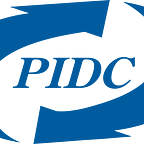Tour-learning Travel Agency-Green Island’s low-carbon sustainable tourism is conserving the ecosystem (島嶼見學有限公司)
More than 400,000 visitors per year have far exceeded the tourism-handling capacity of Green Island’s ecosystem. Green Island was once proposed by the Pacific Economic Cooperation Council (PECC) as the most prominent location for an eco- resort island development. However, the immense crowd of tourists has overwhelmed the abundant ecosystem on land and under the sea. The mission of Tour-learning Travel Agency is to bring low-carbon and sustainable changes into the existing tourism industry and utilize the hands of visitors to rebuild the culture and ecosystem of Green Island.
Located 33 kms off the coast of Taitung county, Taiwan, and with an area of 16.2 km2, Green Island boasts white sand beaches, green grassland, and alluring coral reefs. Aside from being one of the top ten best diving spots worldwide, Green Island was selected by international specialists from PECC of the Asia-Pacific Economic Cooperation (APEC) organization to be an example of how to develop the concept of eco- tourism.
Green Island has a dwindled population of merely 2,000 residents, but there are more than 3,000 motorcycles to meet tourists’ demands. With more than 400,000 visitors per year, along comes the pollution of garbage, noise and exhaust. The road kill of local wildlife by motorcycles is especially severe. Hundreds of crabs, lizards and small animals crushed under the wheels have afflicted the local ecosystem with irreversible damage.
Consequently, a group of local residents who have been promoting eco conservation and cultural heritage started to contemplate alternative approaches towards the tourism industry on Green Island. “In order for the environment to thrive with the economic growth, the first step of eco-tourism is to discover threats the local ecosystem faces,” explained by Associate Professor Chao Ren-yi of I-Shou University, who is also one of the proactive group members. With the analysis completed, and with proposed strategies of engaging tourists as a part of a problem-solving initiative, the final step is to design a low-carbon and “slow traveling” tour to achieve the sustainable goal of mutual prosperity of the economy and the environment.
Tour- learning Travel Agency has since arranged several eco tours for visitors to participate in the activities of ecological conservation,such as providing safe passage for sesarmid crabs (Metasesarma aubryi), finding a home for hermit crabs, and Longflower lily rehabilitation. These plants and wildlife are key players in the promotion of ecotourism on Green Island. At present, most B&B owners are supportive of such conservation activities and are willing to pass on these messages to their clients. During the spawning season, thousands of the sesarmid crabs have to make their way across asphalt roads to the beach to lay eggs. During these days, Tour-learning Travel Agency holds escorting activities for tourists to participate in directing the local traffic to avoid running over the pregnant crabs and at the same time, guarding the mother crabs to safely cross the roads. Once they see crowds alongside sections of the road and understand the reason behind such a scene, most riders and drivers are quite willing to slow down and make way for the crabs.
While promoting eco tours, Tour-learning Travel Agency also advocates for the use of bicycles and electric motorbikes, a reduction of the amount of disposable items and prioritizing local seasonal produce to mitigate carbon emissions and conserve energy. With the assistance provided by ‘Project Rising Star in Green Innovation for SMEs’, Tour-learning Travel Agency convinced vendors on the island to assess the carbon footprint of each service including an overnight stay, a sustainable meal, and different methods of transit on the island. By identifying the carbon emission hot spots from the tour arrangements, Tour-learning Travel Agency has been able to consider more eco-friendly alternatives in designing future sustainable tours for visitors to relax their busy minds while contributing to the rehabilitation of the local ecosystem.
